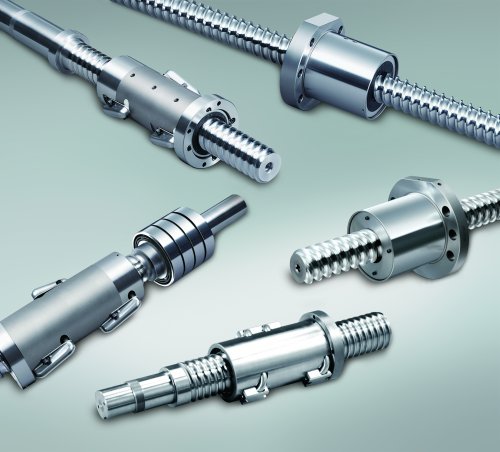Newly-developed S-HTF series ball screws from NSK offer more than double the service life and 1.3 times greater dynamic load capacity than the company′s previous generation product. These performance attributes have been achieved thanks to the use of a new steel material for the screw shaft that delivers an optimised combination of hardness and resilience. Specially developed by NSK, the aptly-named ′Tough Steel′ (TF) is already being used in the company′s rolling bearings with great success.

The S-HTF ball screw has been designed for high-load applications, such as those found in plastic injection-moulding machines and forming presses. With demand for plastic products set to continue growing in coming years, component manufacturers increasingly want machines that operate with shorter cycle times and greater productivity. However, this has consequences for the electric linear drives of the clamping units. They move faster and – depending on the application – with increased clamping force, yet they are expected to last as long, if not longer than existing-generation solutions.
To meet these demands, NSK has developed S-HTF ball screws with screw shafts and nuts manufactured from TF. The high-purity of TF enables – in combination with special heat treatment – the surface of the material to be more resistant. This ensures that no cracks develop from indentations in the material caused by rolling over particles of contamination. Instead, the surface is simply ′smoothed out′ by the roll-over pressure.
Field trials at customers in Japan show that NSK′s S-HTF series high-load ball screws have a service life 2.2 times greater than its predecessor, the HTF series, along with improved load capacity.
The S-HTF series is currently available with shaft diameters from 50 to 100 mm, and leads of 10 to 60 mm (depending on diameter). Overall, there are 21 variants of the new series available. They are not only suitable for the electric clamp axes of injection-moulding machines, but for other high-load applications such as servo presses.

 Industry News
Industry News